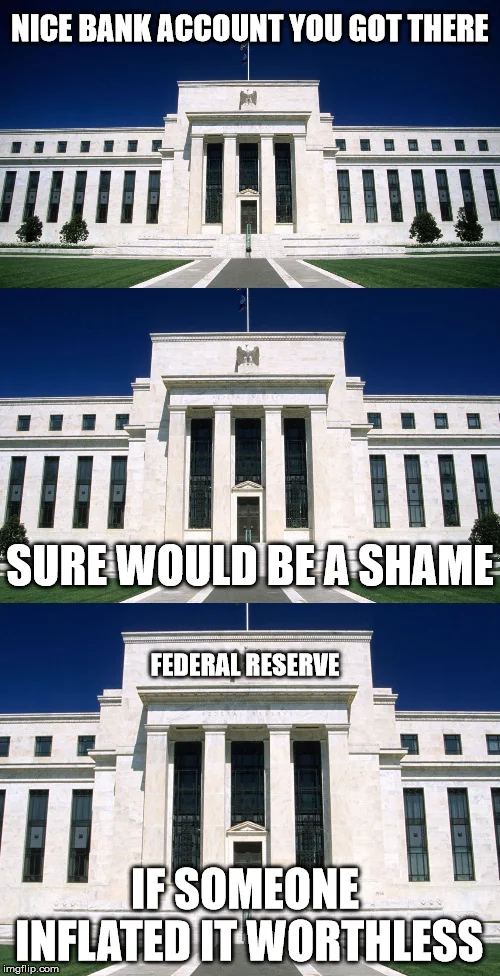
The interpretation of this quote by the then 3rd President of the United States could no doubt be misconstrued or debated in many different contexts, nevertheless the fact that he ever used this phraseology in the first place must lead us to a conclusion that he had a very dim view of banking institutions.
For the layman, Banks are a necessary evil and something we have to live with and which sadly will have a controlling effect on the rest of our lives, once we reach that age where we can finally access a degree of financial independence and slowly move away from earlier parental support.
Unfortunately, banks have drifted away from the real “Know Your Customer” (KYC) of the past where you could walk into your local branch and the banking staff would physically know you. Today people have become commodities and basic KYC has evolved into a more mundane task of providing all sorts of personal information into an electronic system that will never replace the personal touch. It is doubtful in my mind that half these forms or documents are ever fully checked and the exercise has become more that of a tick box approach.
Banks ultimately are institutions that need to deliver profits or dividends for shareholders as well as added incentives for executives that help steer the ship. To achieve these objectives, they feed off the blood sweat and tears of their needful customers, by in most cases, upselling loans or other high interest lending products to people who quite likely don’t have an ability to repay their debt and when they eventually do, will have probably paid more than half again for what was in the many instances an unnecessary consumer product?
My father always gave me some sound practical advice, if you can’t afford it, don’t buy it!
Many governments across the globe are possibly the worst offenders when it comes to borrowing more money than whatever they have stashed away within their treasury or federal reserve. When this happens, the easy fix is just to have more money printed and pile on more debt as if it’s just an ever flowing gravy train. However, when the breaking point eventually comes (& it will at some point!), it will come with a mighty thump, and most likely lead to hyper inflation and push the bulk of their country’s populations into poverty.
We can already see examples of this happening right under our very eyes and yet the austerity measures needed to correct the mistakes of past decision makers will never be taken. Why? because that alone would be political suicide for the incumbent parties in power, and as such, these debt mountains will continue to rise or even worse, we see a repeat of what happened in Germany in the 1920’s and 30’s?

For those of us who may be fortunate enough to live with any degree of reasonable savings, banks also prey on these funds and indeed, it is these deposits that will become the manacles farmed out to other consumers in the form of expensive credit card facilities or loans. In consideration for supporting the lending life cycle and giving the bank access to our cash deposits, they willingly give us a mediocre interest rate and have an abacus in hand already counting out their profit.
The real pariahs out there are the private banks and in many cases banks domiciled in the likes of Switzerland who only like to support ultra rich clients who are looking at ways to hedge away from more traditional deposit based accounts.
This requires very sound financial advice and unfortunately, these institutions tend to ring fence themselves with a ton of fine print and will never accept that they have made mistakes when things go wrong and that ultimately, the unknowledgeable consumer should have known better!
Unfortunately, I have a personal experience with this treatment and for legal reasons cannot name and shame the institution concerned, however, I will certainly never forget the damage that was caused by their extreme lack of “duty of care” and negligence in handling our savings. Had I had the resources to sue, absolutely, I would have gone all the way as even the country’s Ombudsman, you could tell, was not at all interested to accept the facts, and was probably more interested in protecting the concerned financial institution than listening to the woes of an overseas complainant.

I suppose like any product or service we go back to the basic rule of “Caveat Emptor” namely let the buyer beware! This is very true, but none the less we are surrounded by salesman offering all manner of promises and when we purchase products from those who profess to be the very best, we expect a higher degree of quality and after care service, after all, that is what we are paying for.
